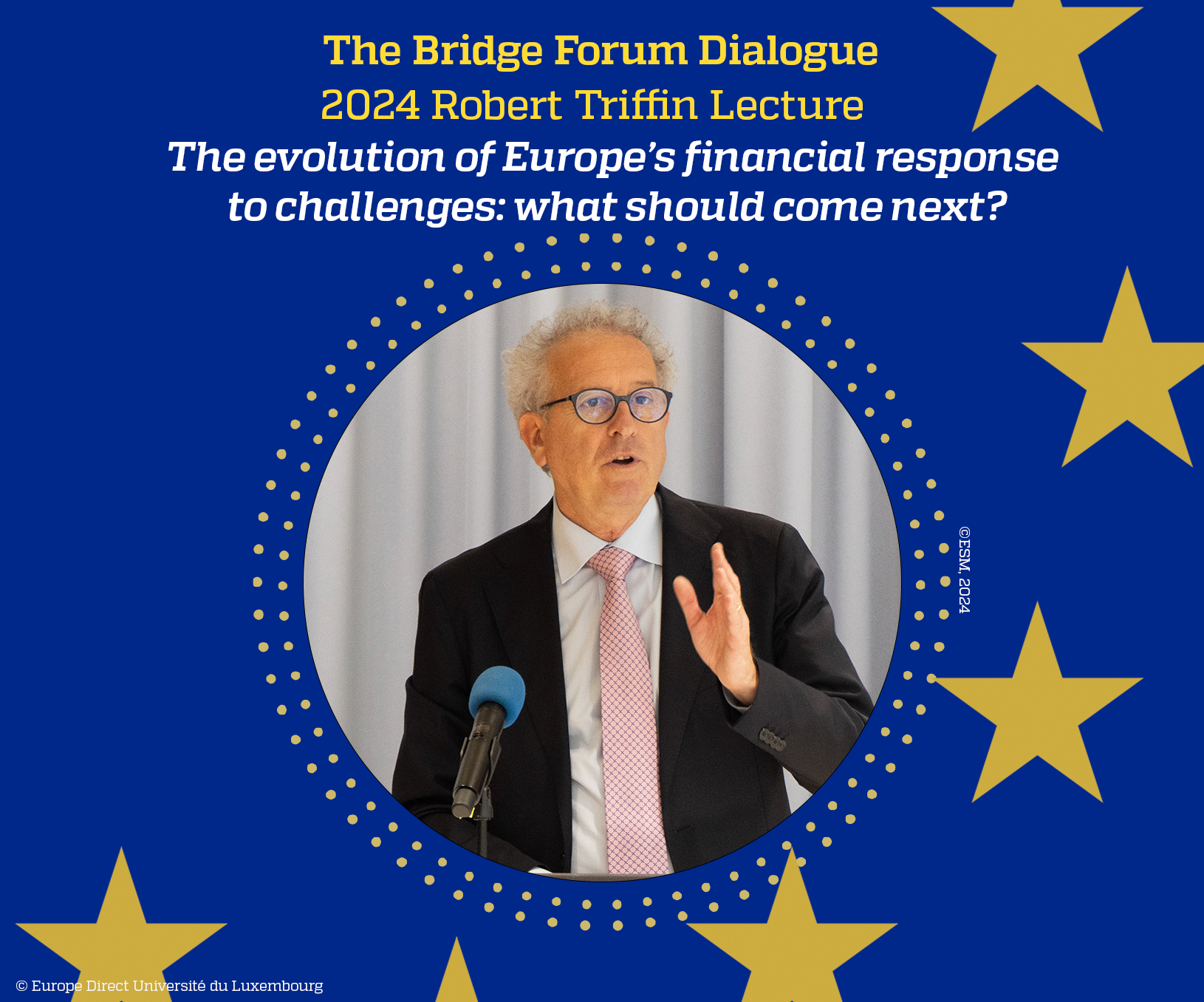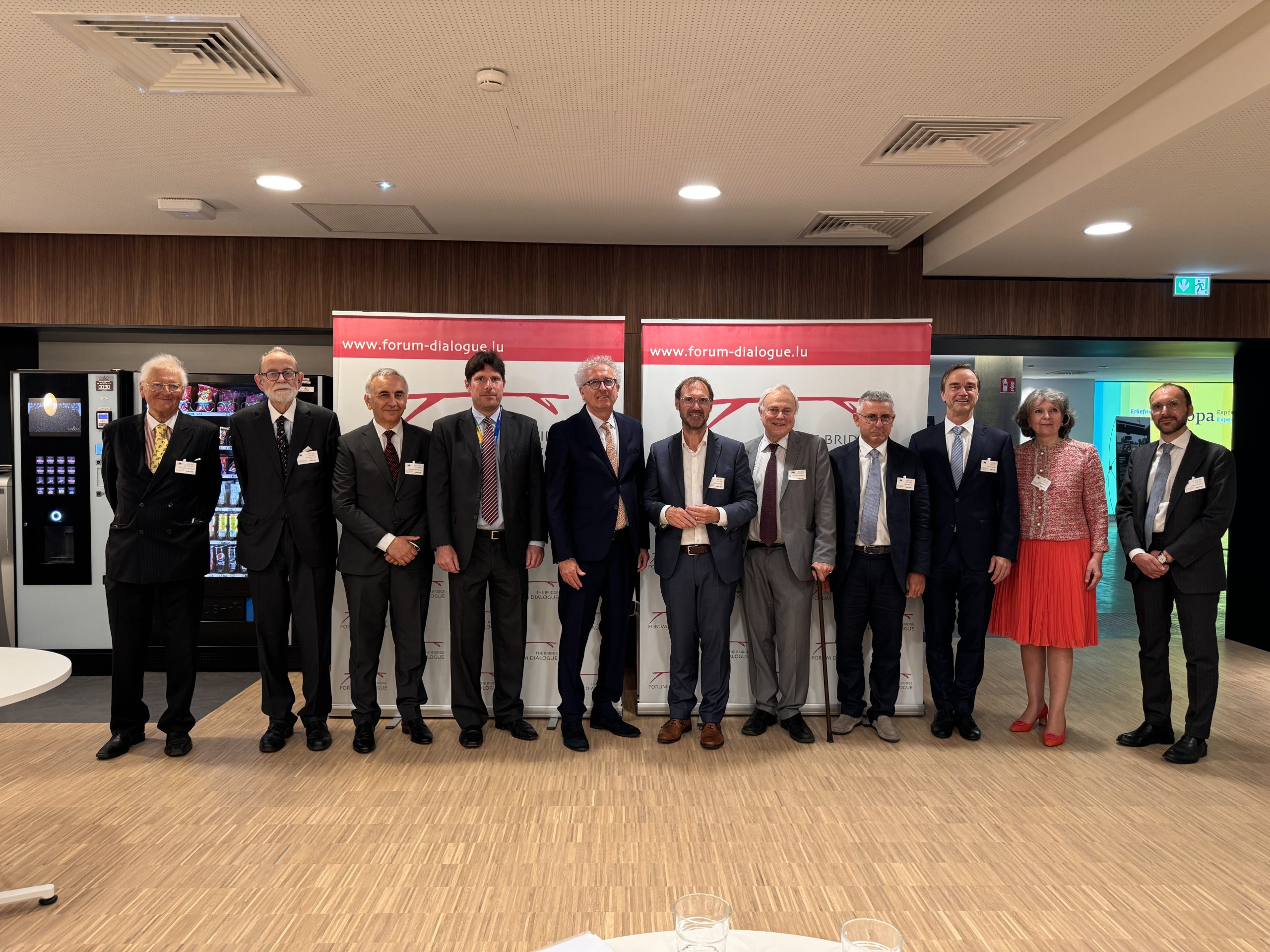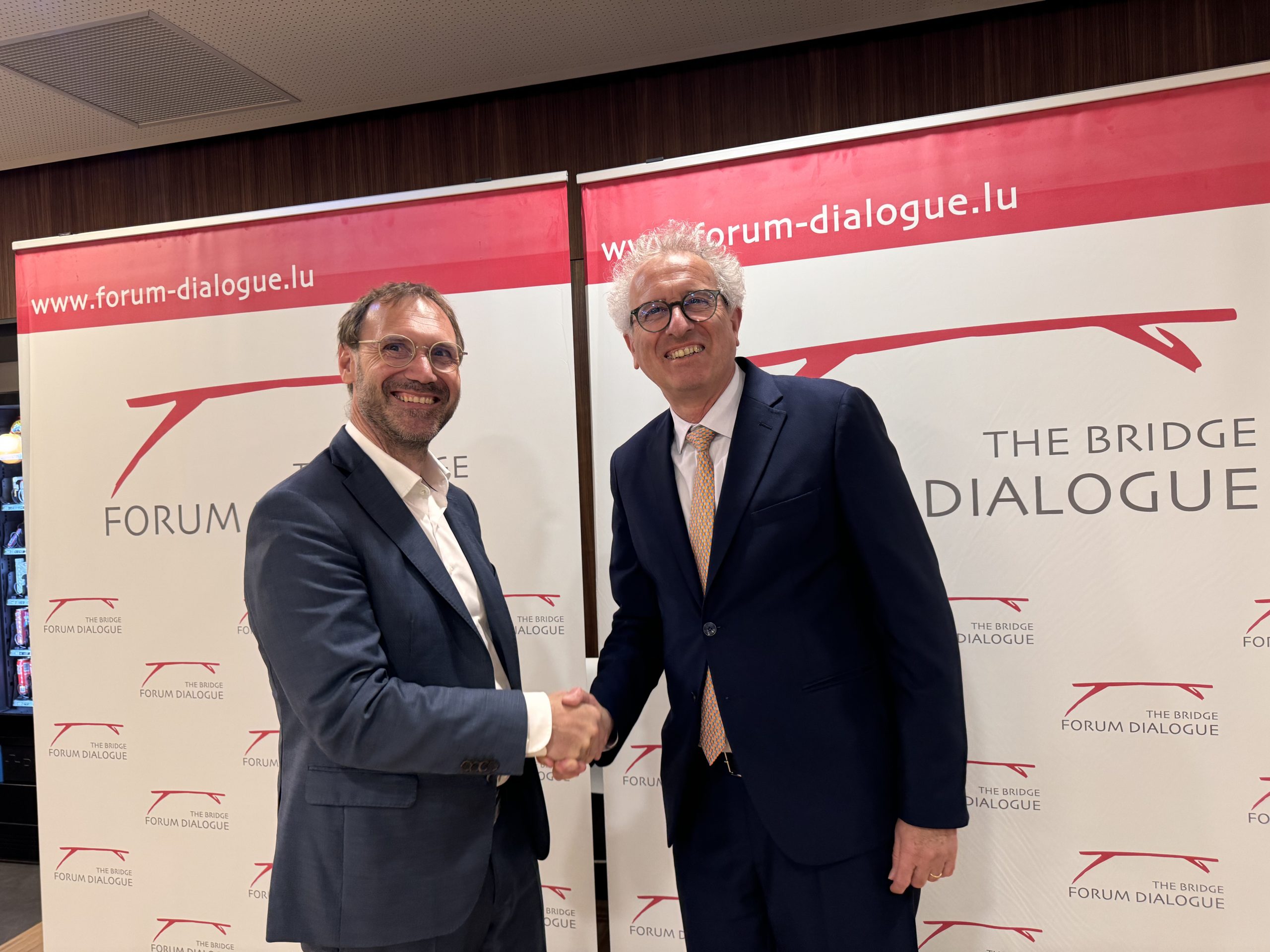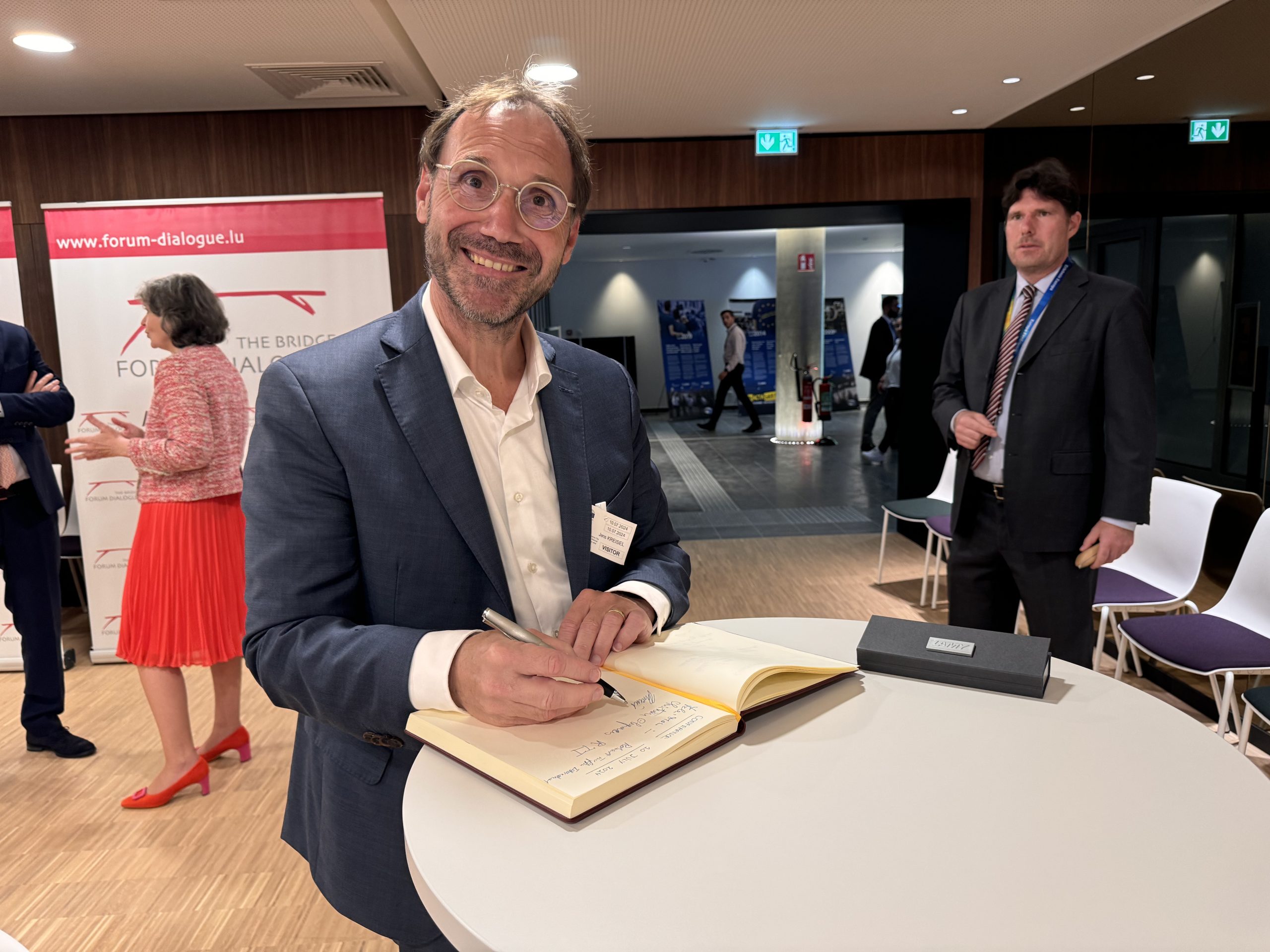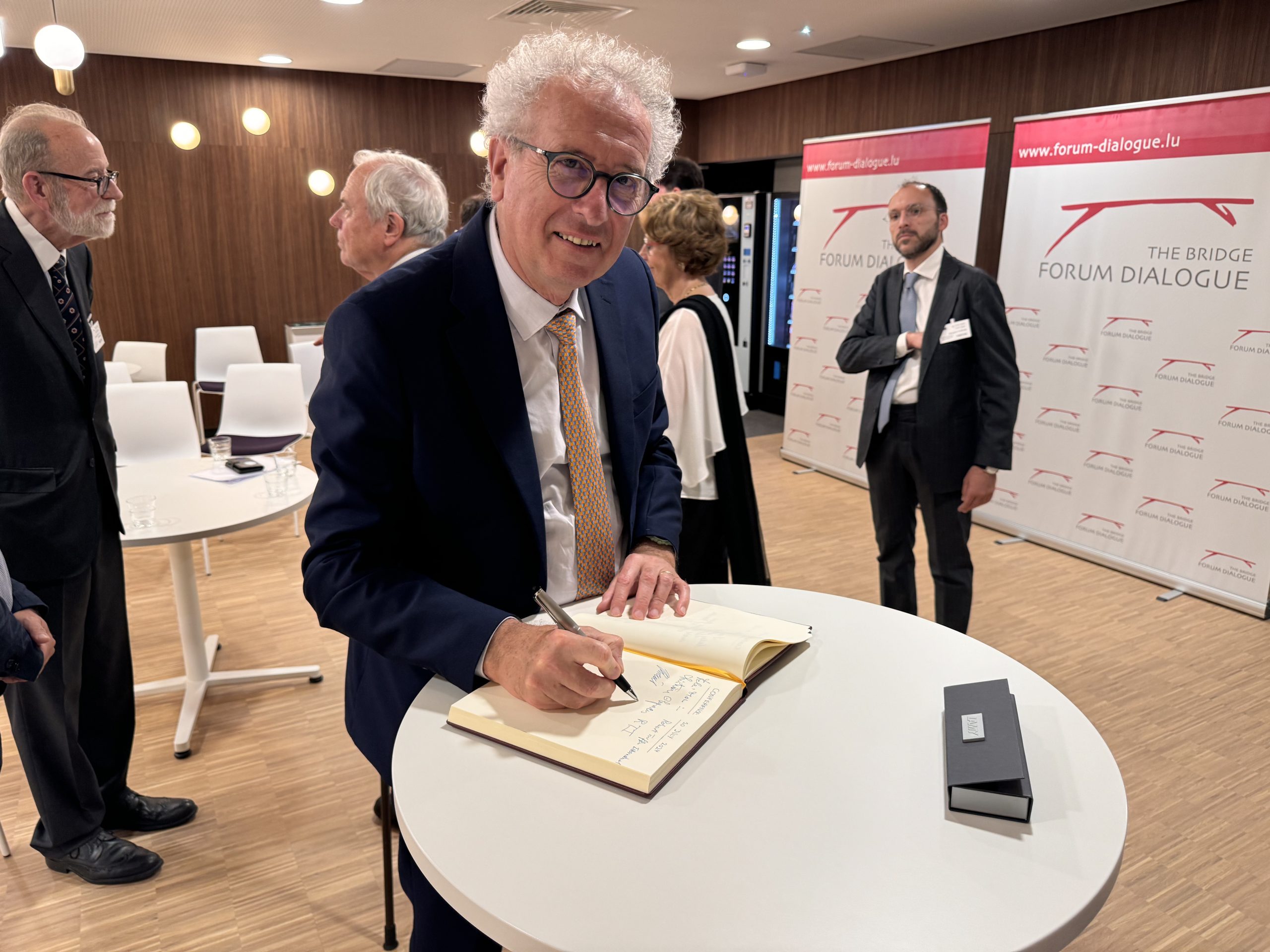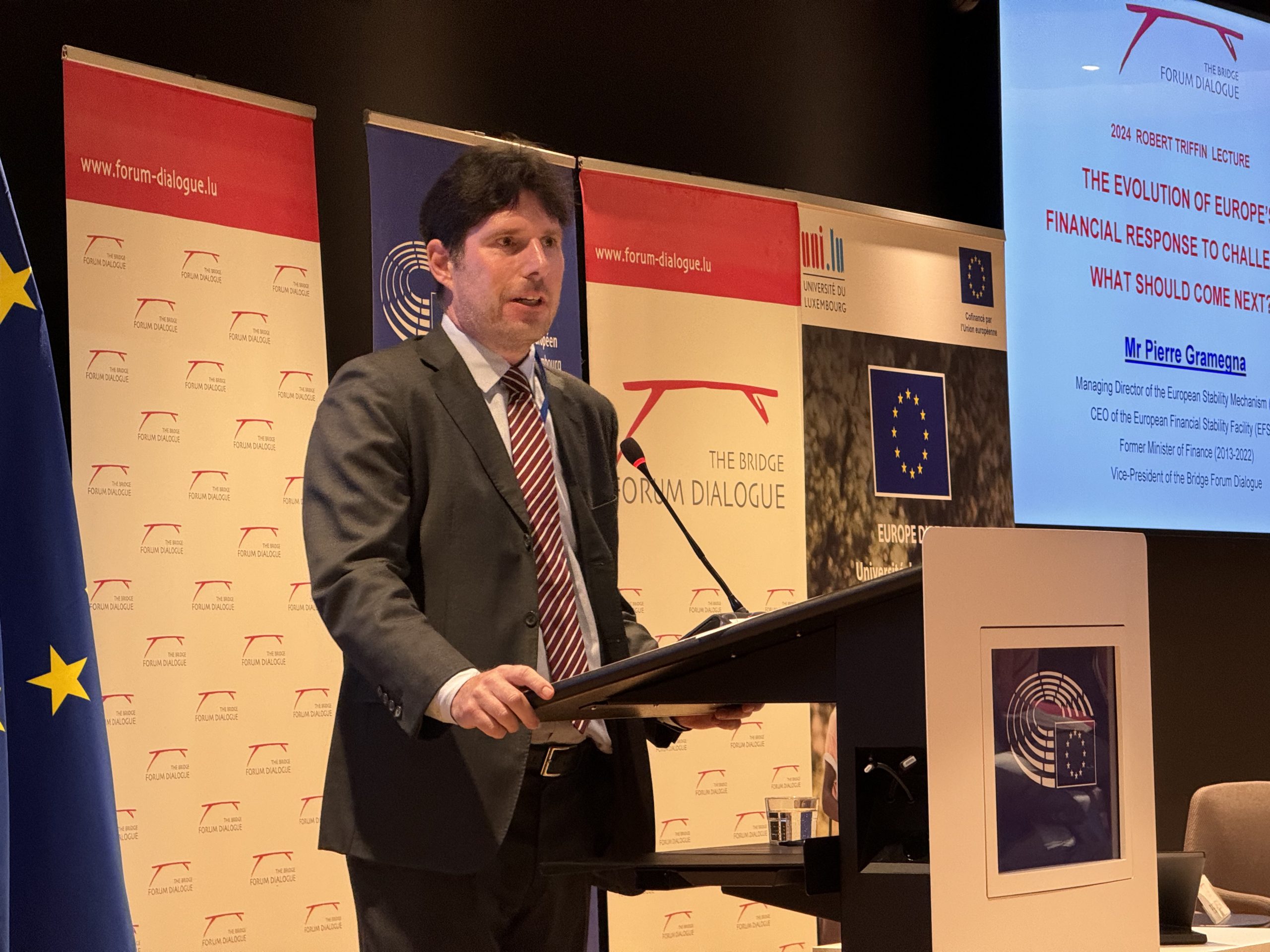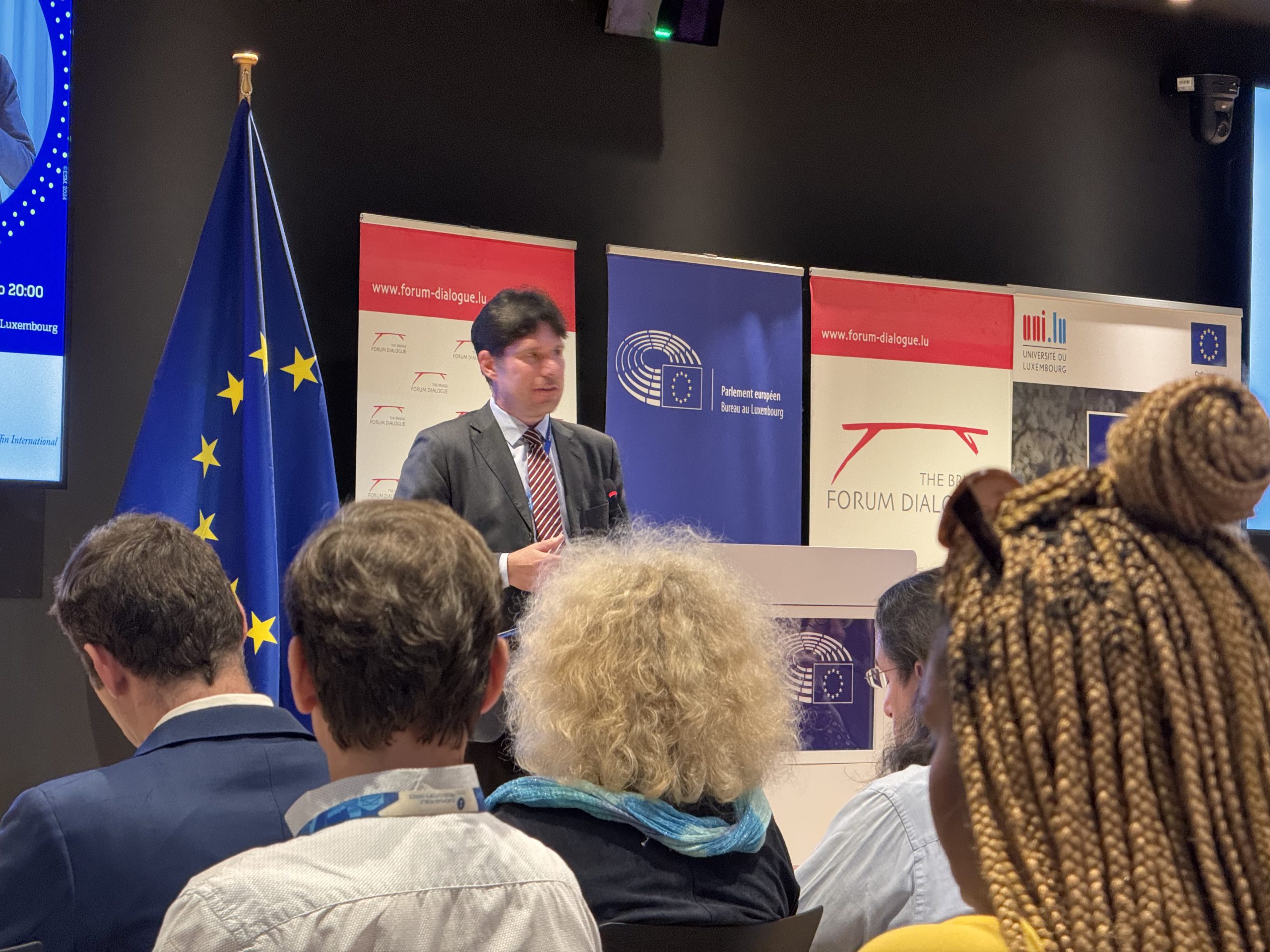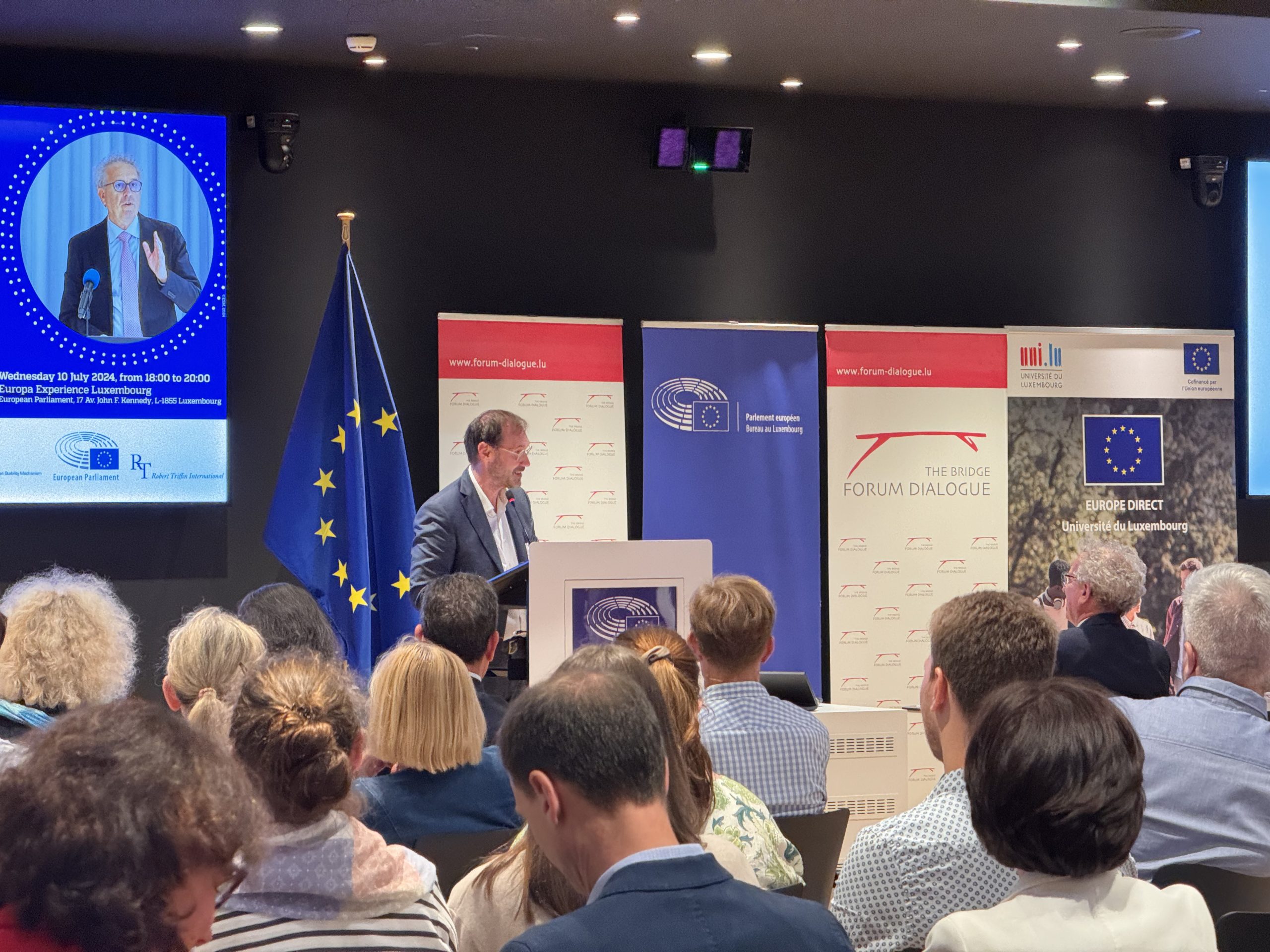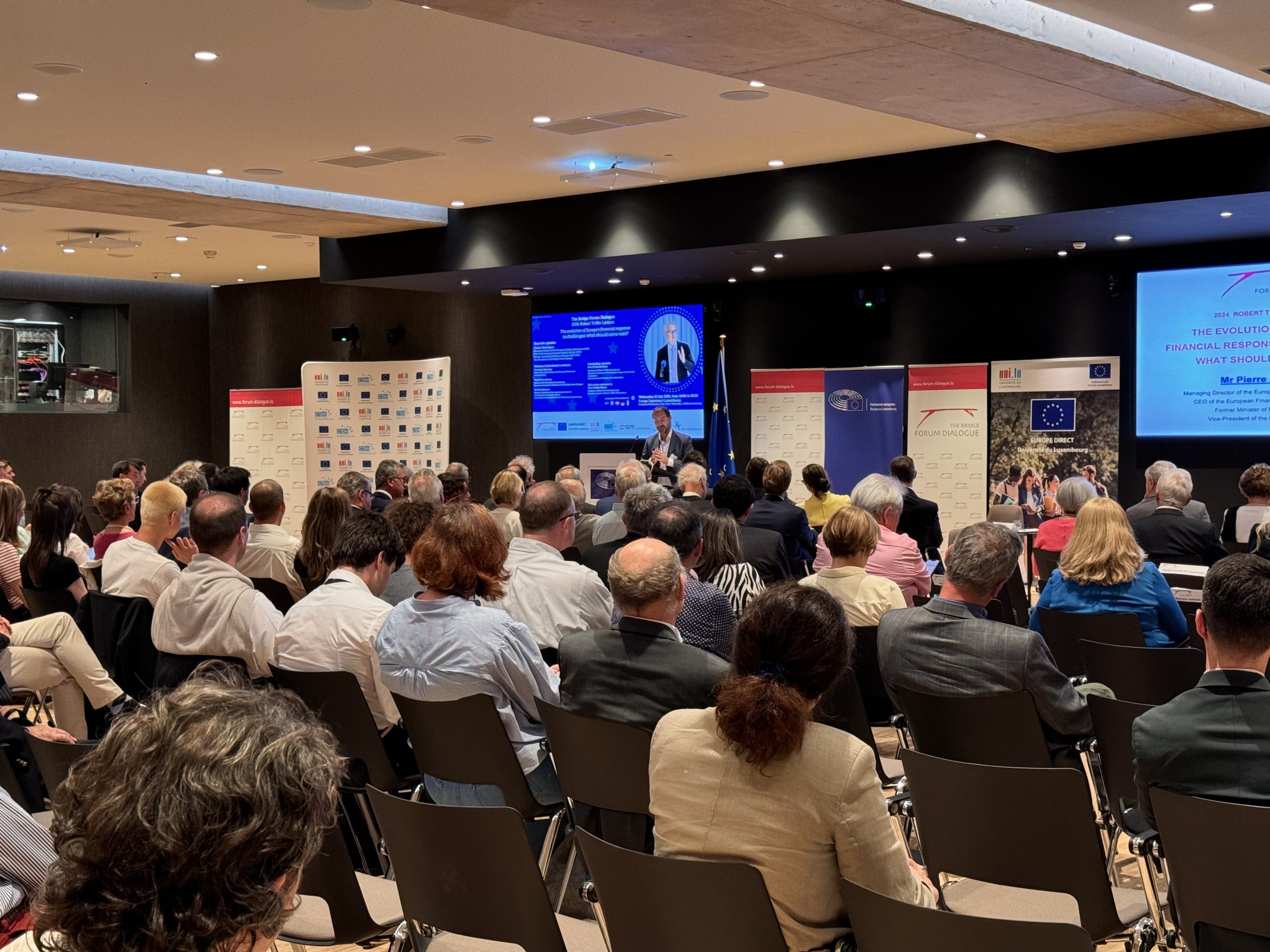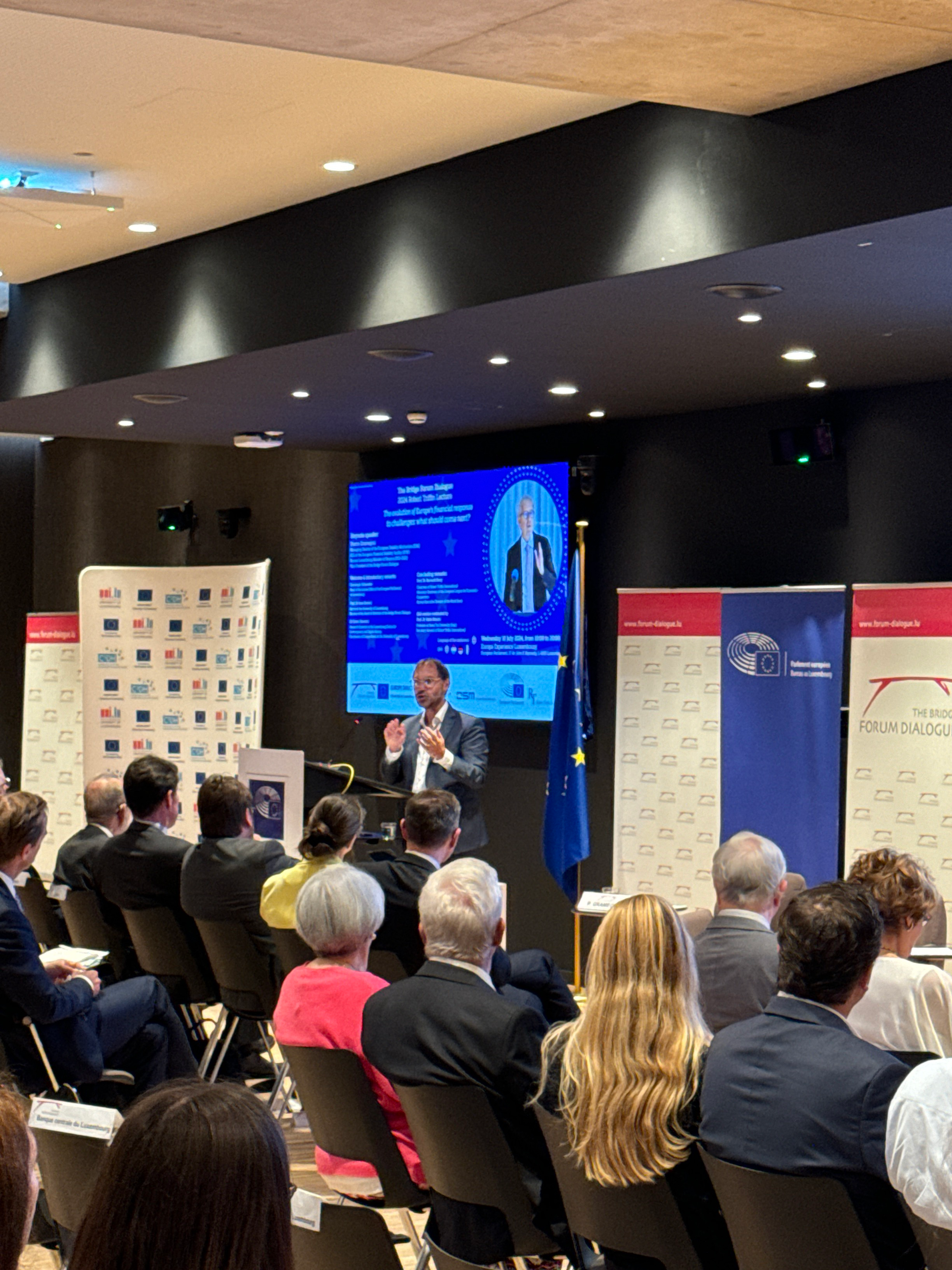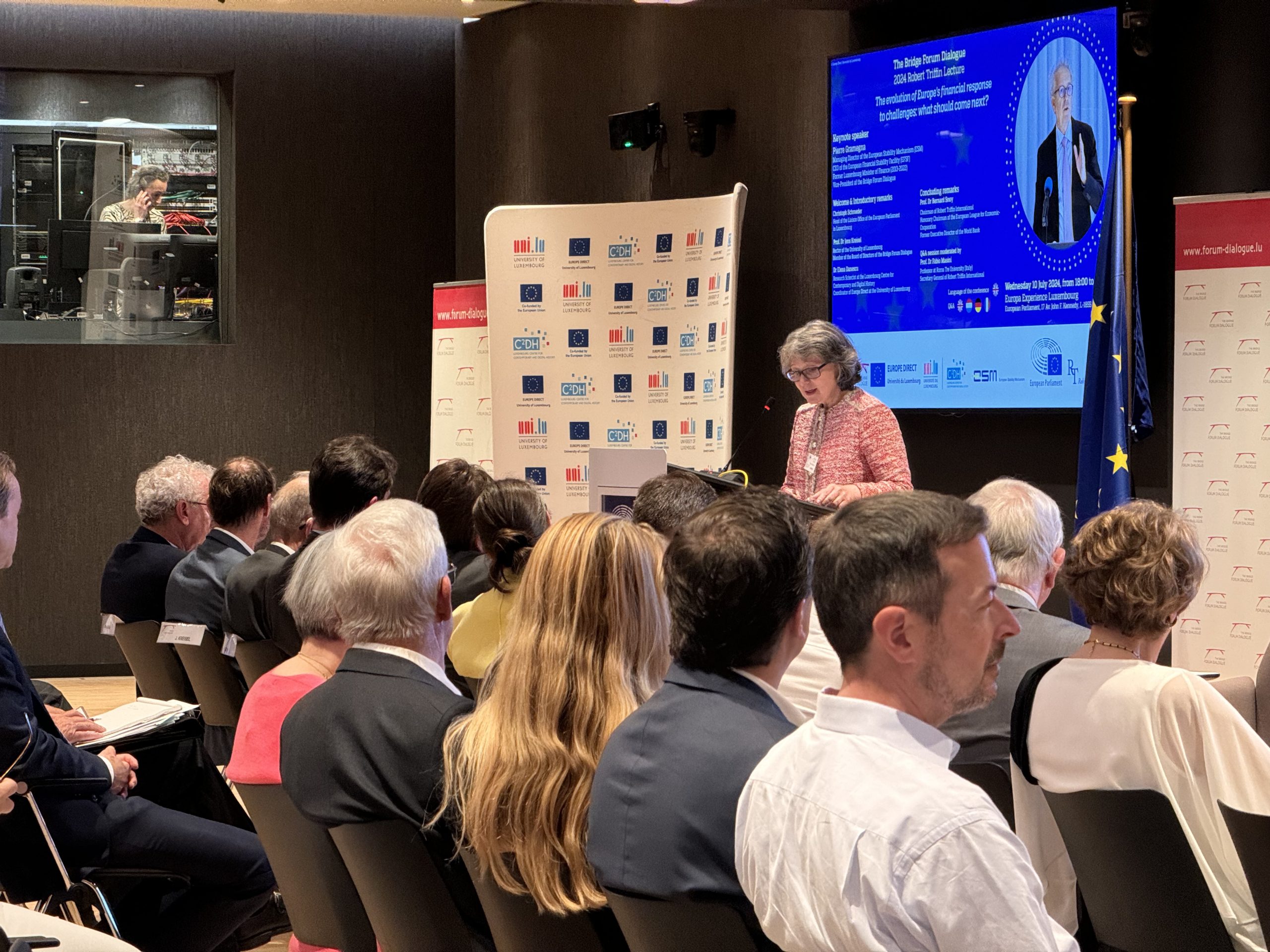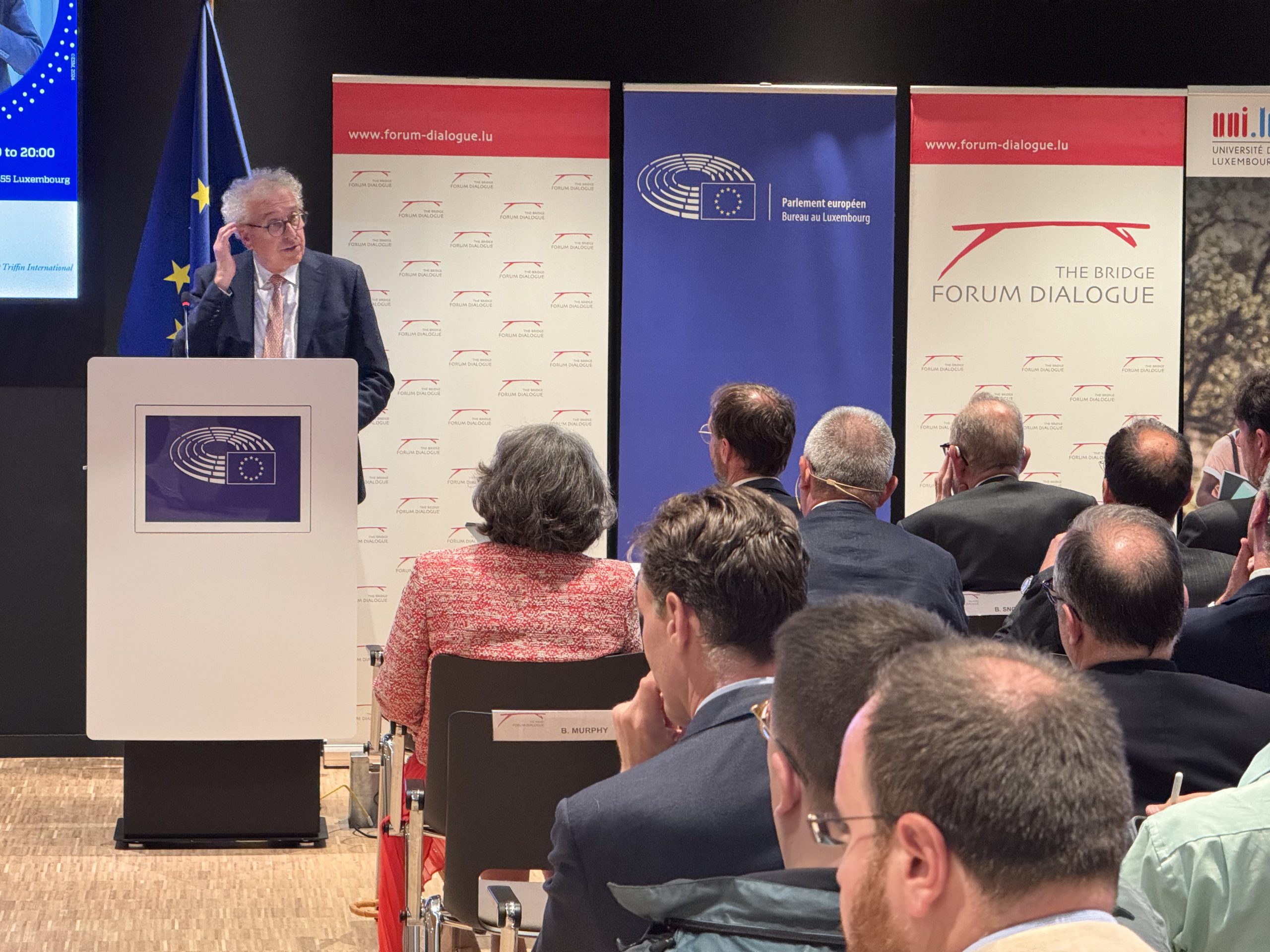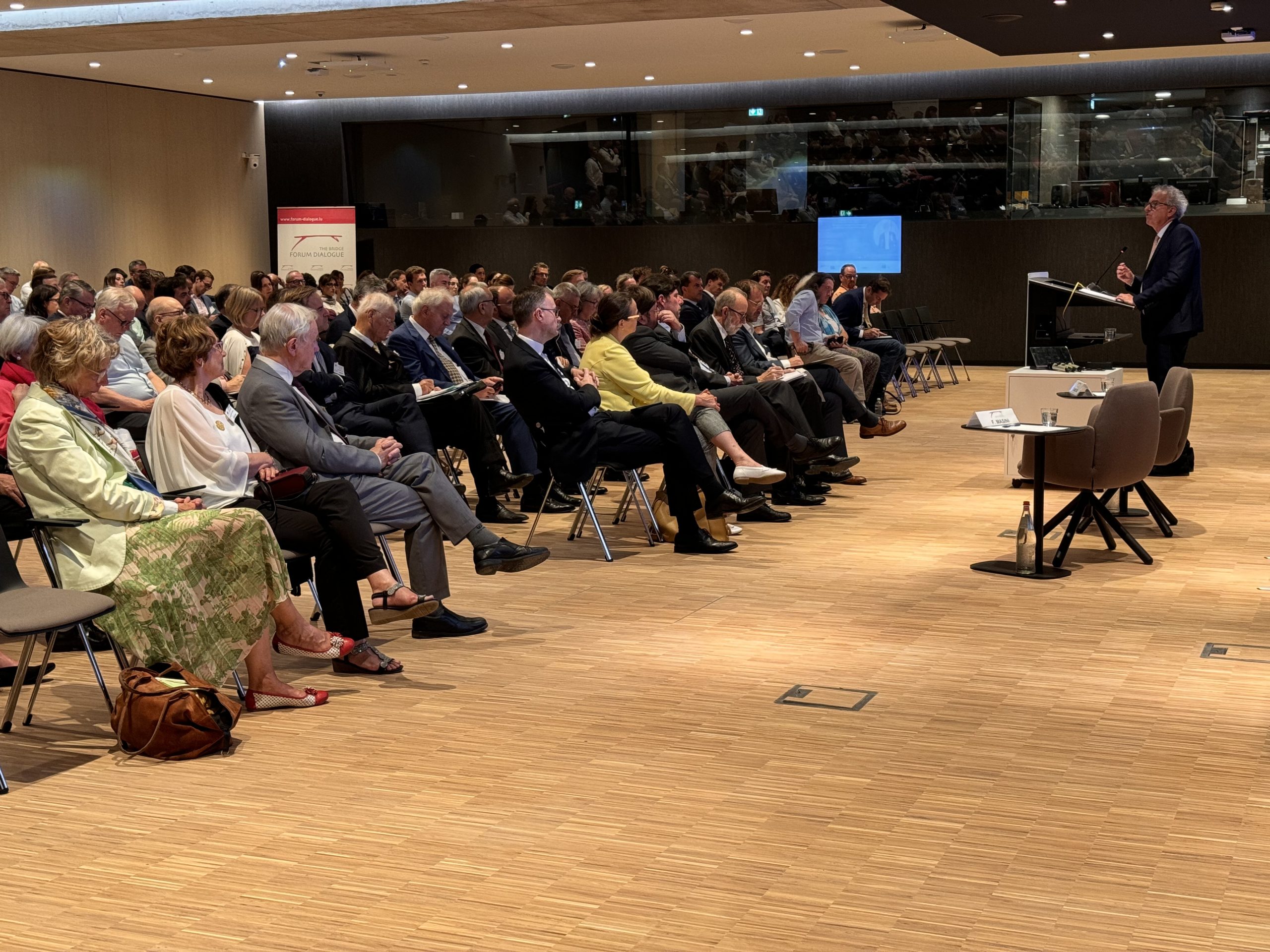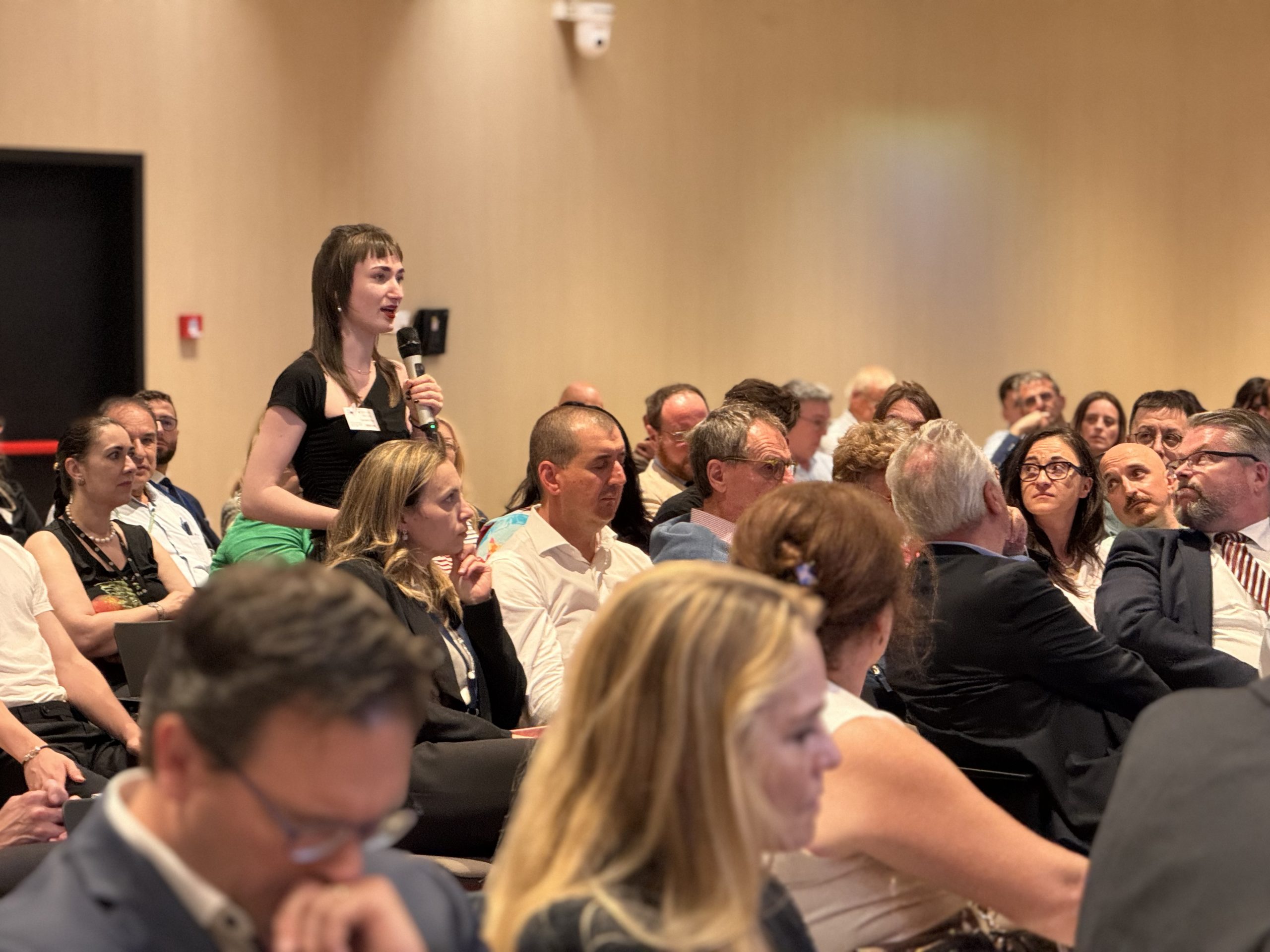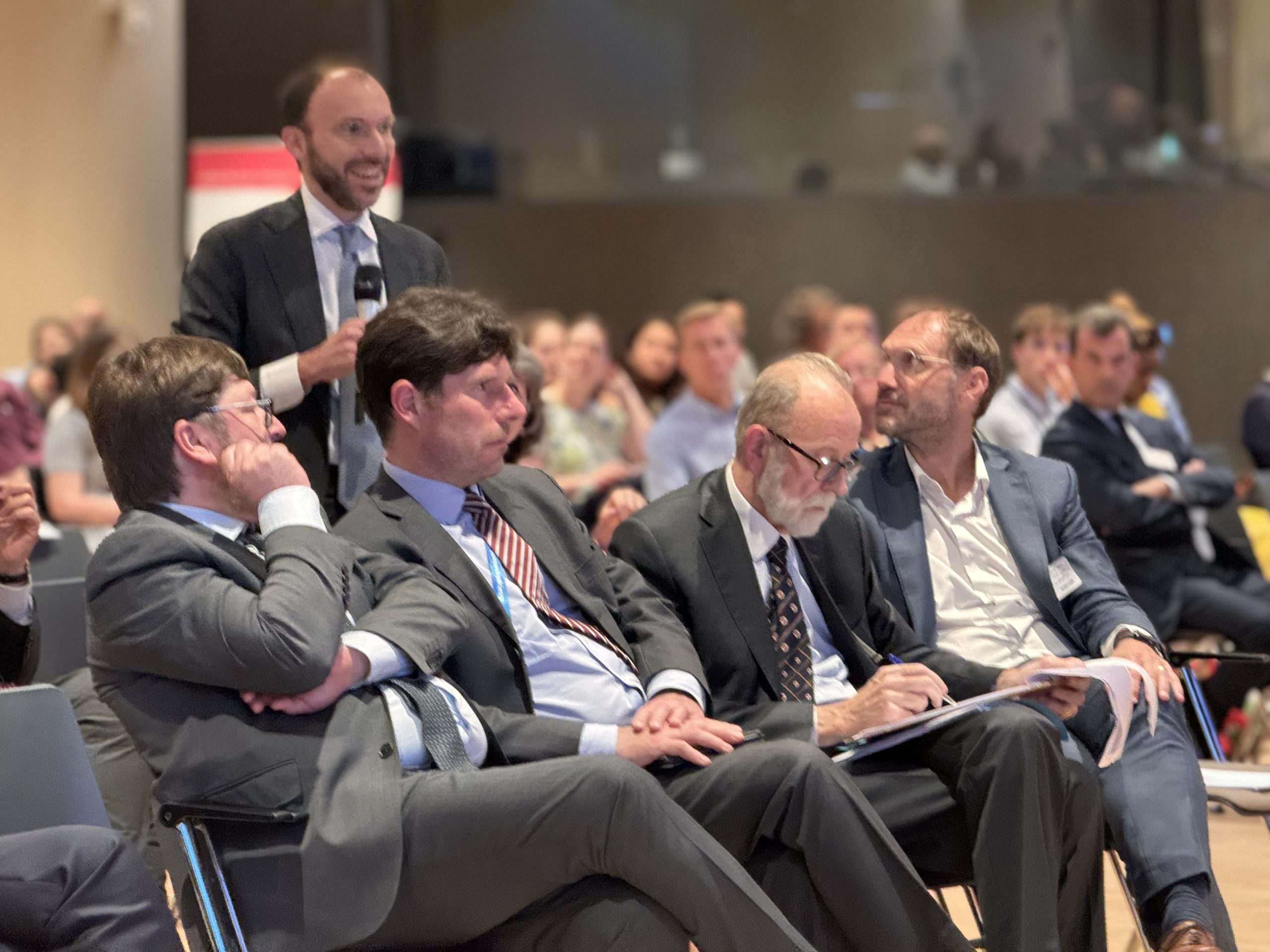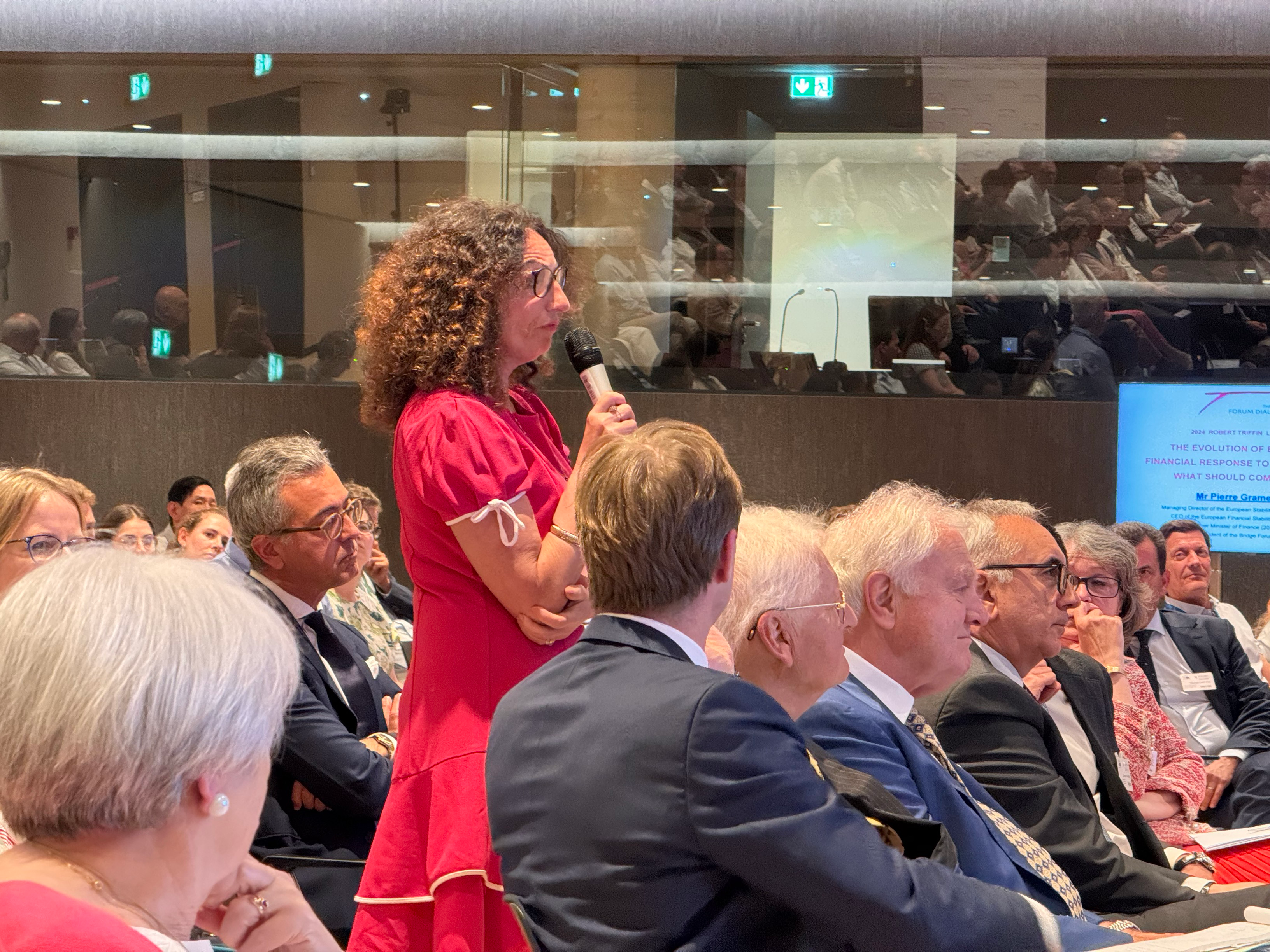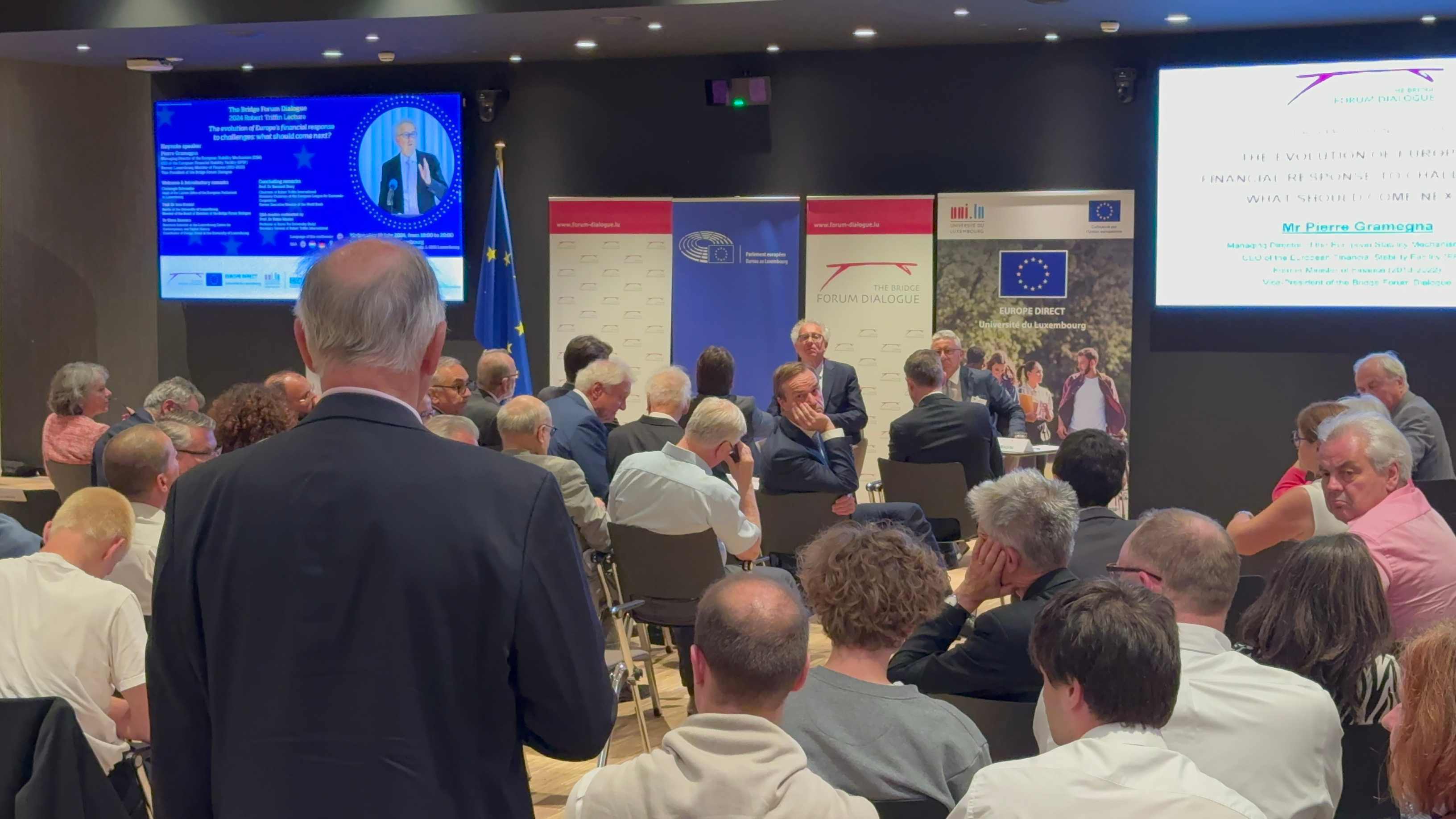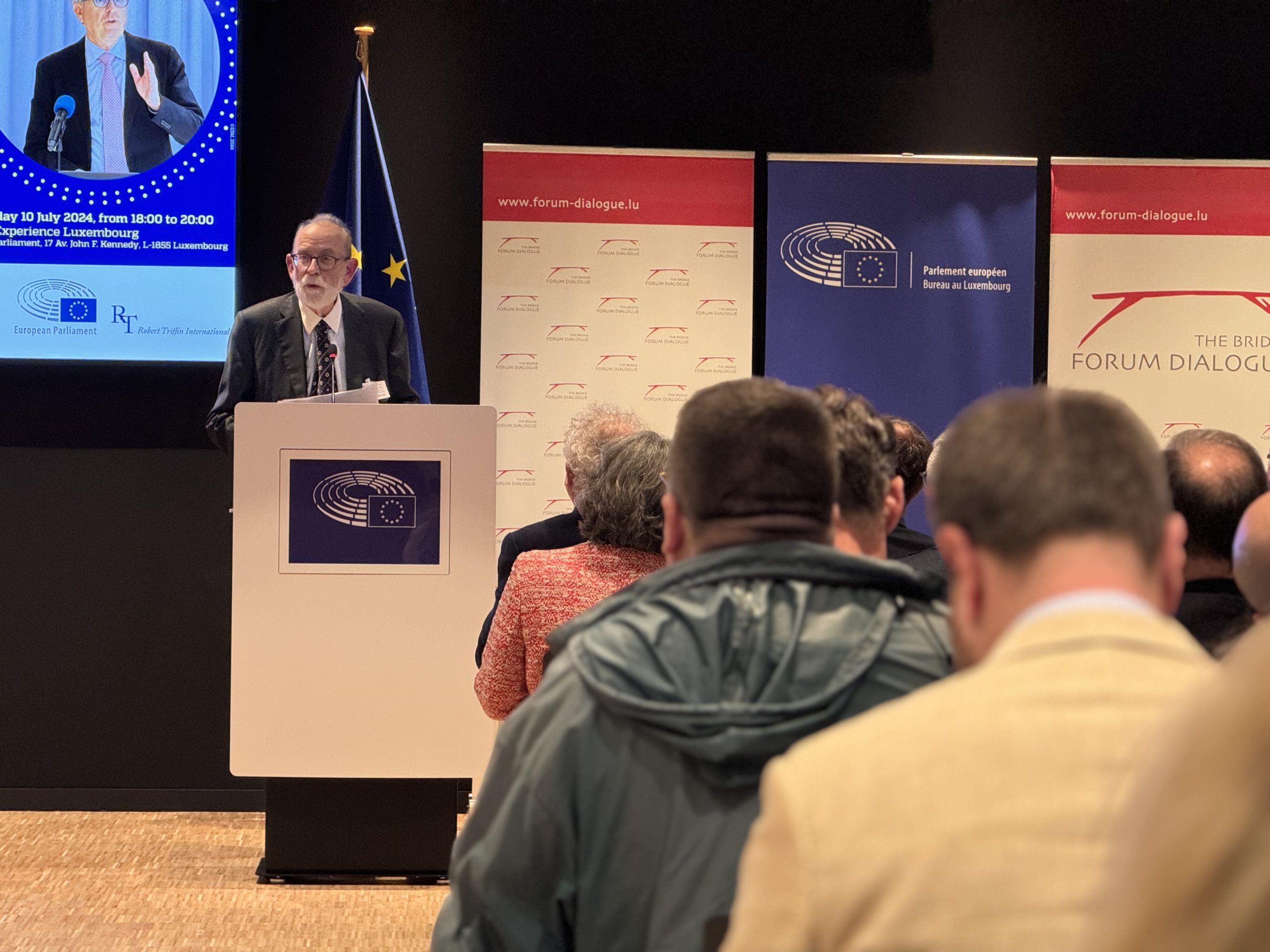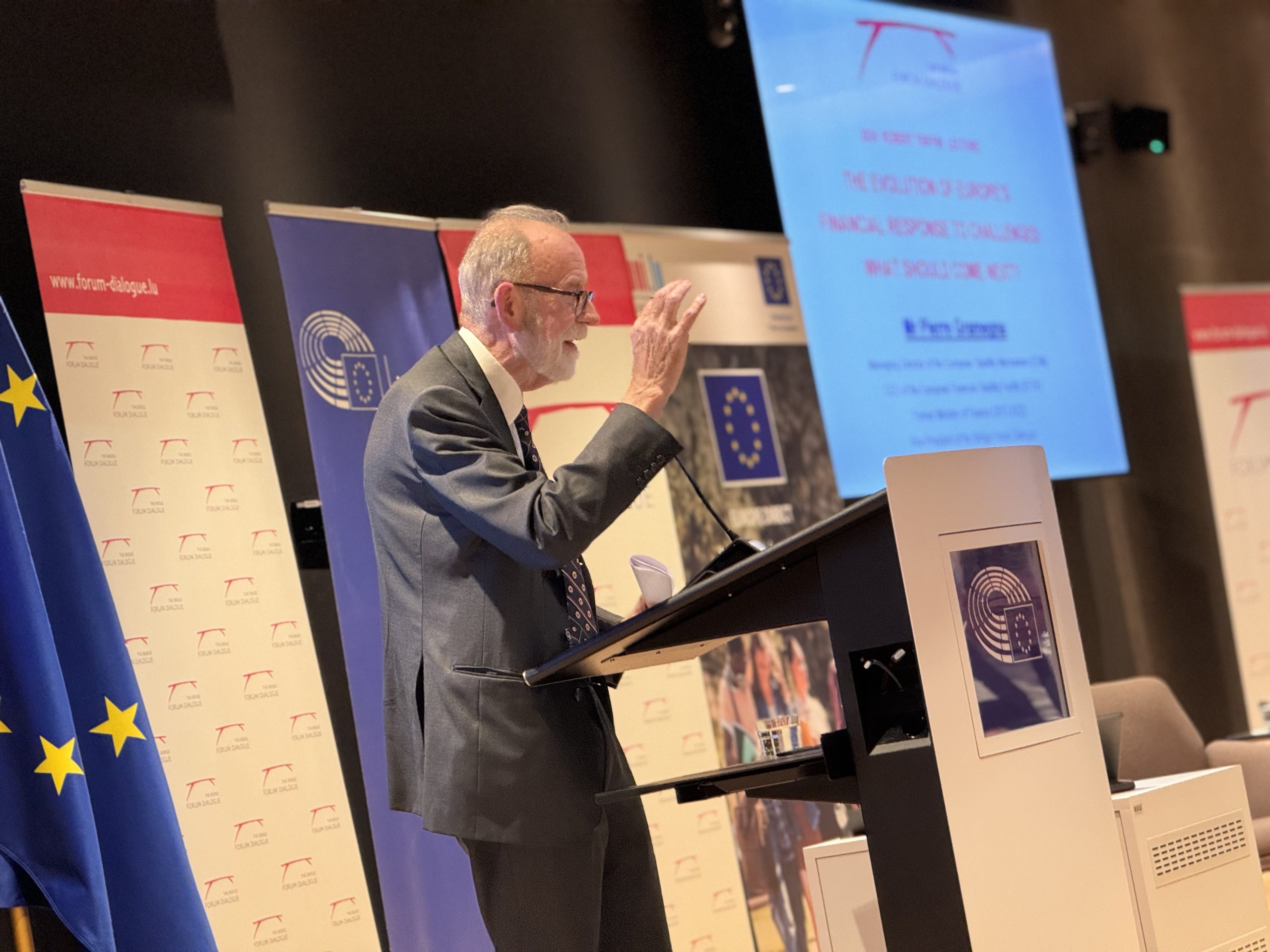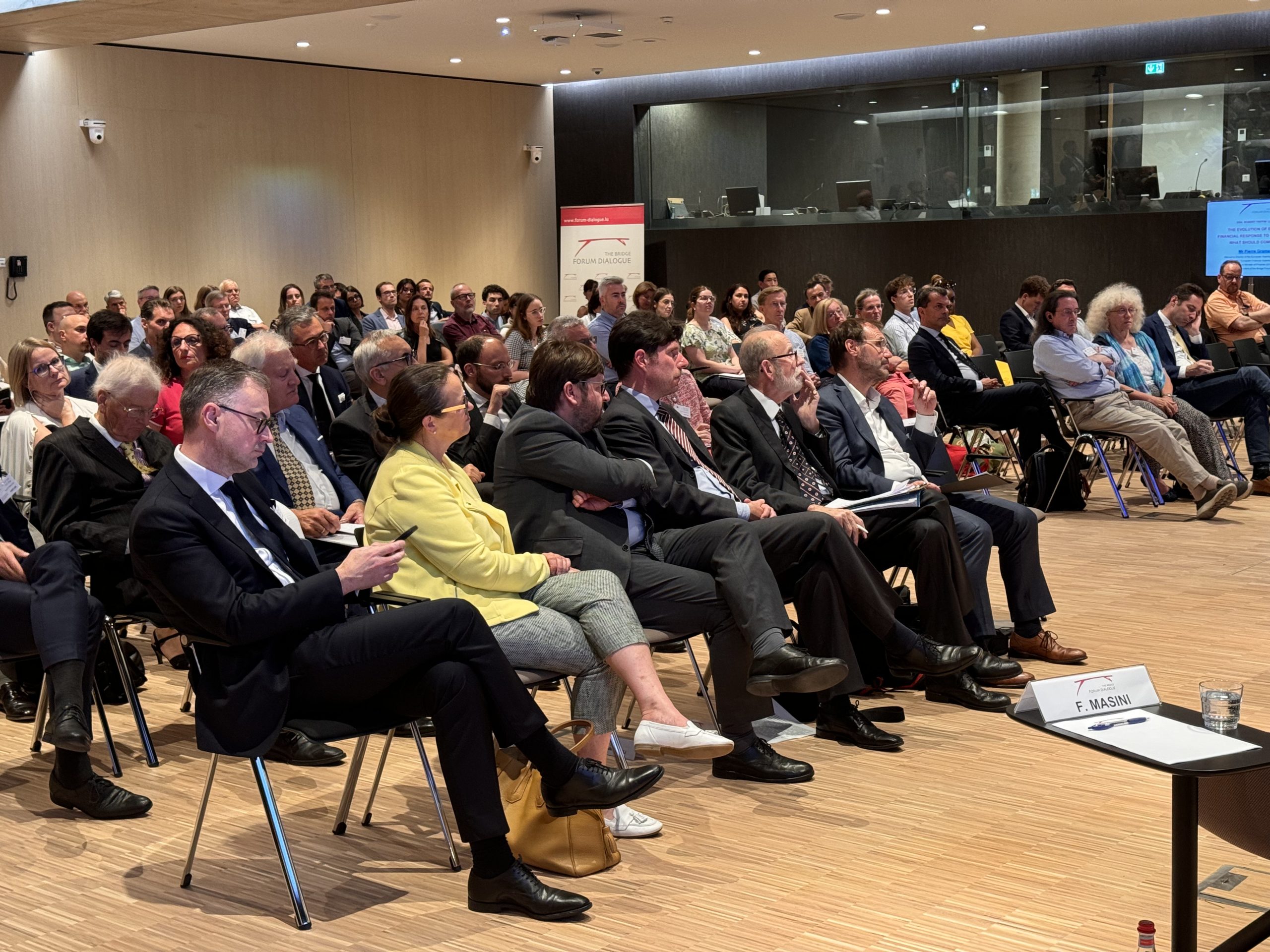The Robert Triffin Lecture 2024
The Bridge Forum Dialogue and the Europe Direct at the University of Luxembourg (ED-UNILU) together with their partners – the University of Luxembourg (Uni.lu), Luxembourg Centre for Contemporary and Digital History (C²DH), the European Stability Mechanism (ESM), the European Parliament (EP) and the Robert Triffin International Foundation (RTI) – have the pleasure of inviting you.
Mandatory registration on Bridge Forum Dialogue and the European Parliament*.
Register at the latest 5 July 2024.
The conference shall be held in a hybrid format. Please mention on the registration form if you will attend the event virtually or in person.
Virtually: A few days before the event, the streaming link will be sent to the registered participants.
In person: Venue, within the limits of available seats and subject to the security rules of the European Parliament.
All buttons open a new tab
*Participants without an access badge to the European Institutions premises are required to verify their registration to have access to the Europa Experience building.
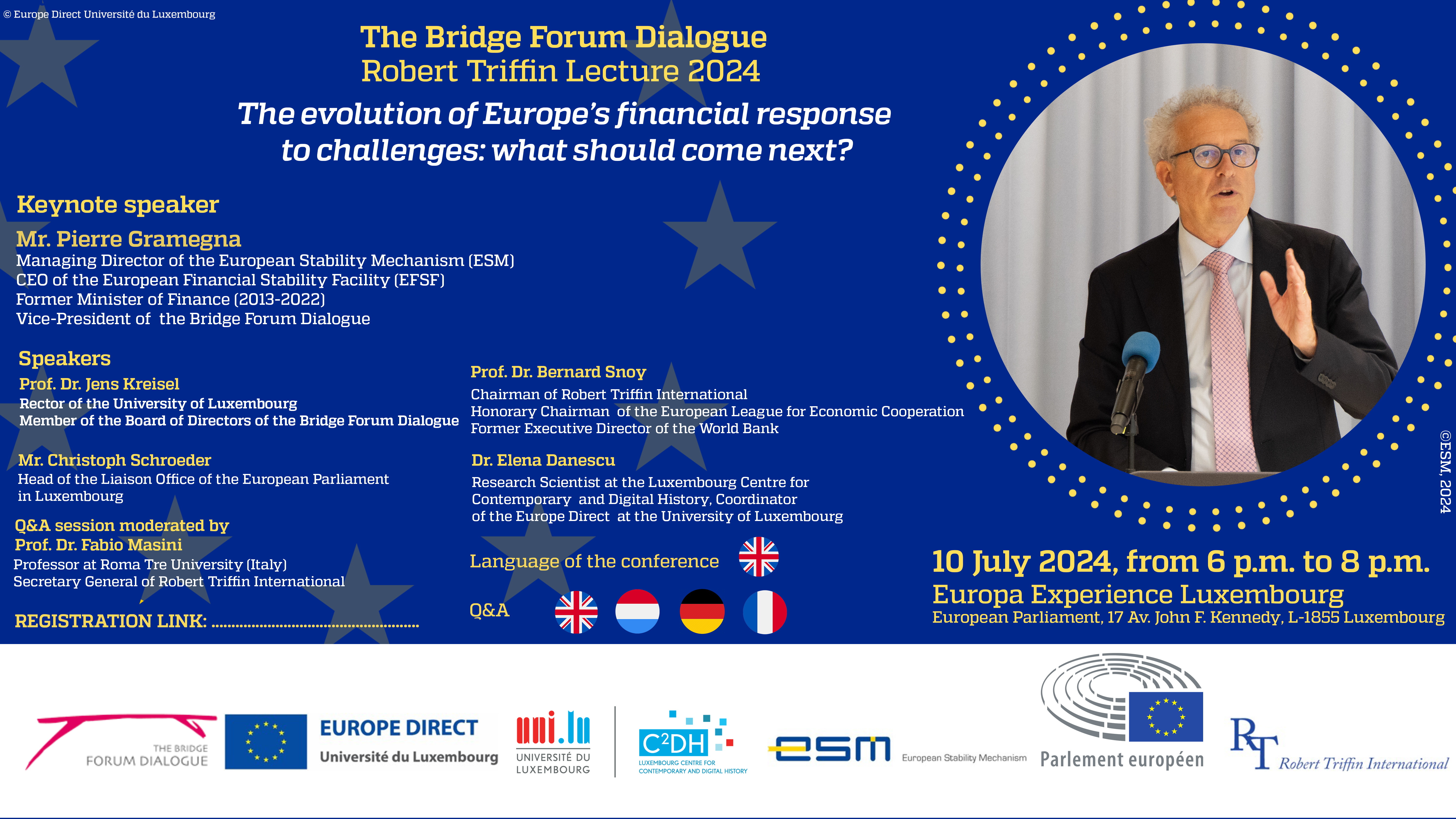
Keynote speech by Mr. Pierre Gramegna
Keynote speaker
Pierre Gramegna is the Managing Director of the European Stability Mechanism (ESM) since 1 December 2022 and CEO of the European Financial Stability Facility (EFSF) since 13 December 2022.
Mr Gramegna was Minister of Finance of the Grand-Duchy of Luxembourg and member of the ESM Board of Governors from December 2013 to January 2022.
In his eight years as Minister of Finance, Mr Gramegna rebalanced the national budget and ensured that Luxembourg fully complied with the EU Stability and Growth Pact. During his term, the country was rated AAA by all rating agencies.
Mr Gramegna also served as chairperson of the Ecofin Council in 2015 where he chaired the ministerial meetings and oversaw major directives on the automatic exchange of information and transparency.
In his capacity as Finance Minister, Mr Gramegna served as Governor to the International Monetary Fund and several multilateral development banks. In 2016, he was elected Chairman of the European Bank for Reconstruction and Development for one year.
In 2017, he set up the Luxembourg House of Financial Technology to promote fintech and the enhanced digitalisation of the financial centre.
Mr Gramegna is committed to issues related to climate change illustrated by his participation in the United Nations Climate Change Conference (COP 3 in Kyoto as spokesperson for the EU, COP 23 in Bonn and COP 25 in Madrid as finance minister) and initiatives taken in the field of sustainable finance, including the setting up of a climate finance platform with the European Investment Bank.
From September 2003 to December 2013, Mr Gramegna served as Director General of the Chamber of Commerce of Luxembourg. During that term, Mr Gramegna served for several years as Vice-President of Eurochambres and as Chairperson of Cargolux Airlines from 2004 to 2008 in addition to being a member of several boards, including the Luxembourg Stock Exchange and BGL BNP Paribas Luxembourg SA.
Mr Gramegna held a diplomatic career spanning from April 1983 to August 2003, holding various posts including:
- Ambassador of Luxembourg in Japan, also accredited in South Korea, from 1996–2002;
- Consul General of Luxembourg in San Francisco from 1993–1996;
- Counsellor at the Embassy of Luxembourg in Paris from 1988–1992; and,
- Secretary, First Secretary at the Ministry of Foreign Affairs of Luxembourg from 1983–1988.
Mr Gramegna studied Law and Economics at the University of Paris II (Pantheon-Assas) where he graduated with a degree (Maîtrise) in civil law in 1981 and a degree (licence) in economics in 1982. He also holds a Master of Advanced Studies (DEA) in European Community Law and was awarded the title of Doctor Honoris Causa from the ESCP Business School in Paris and the Sacred Heart University of Luxembourg.
© ESM, 2024
Interventions
Prof. Dr Jens Kreisel took office as rector of the University of Luxembourg on 1 January 2023.
Jens Kreisel, born in 1969, studied physics and materials sciences in Karlsruhe (D), Lyon (F) and Grenoble (F) and obtained in 1999 his PhD in materials physics at the Grenoble Institute of Technology (Grenoble INP).
In September 2018, he was appointed vice-rector for research at the University of Luxembourg and Full Professor in Physics and Materials Science. A fervent advocate of interdisciplinary research, Prof. Kreisel has founded the Institute of Advances Studies at the University of Luxembourg. He has been one of the main architects of both the Strategy framework and the current Four-Year-Plan of the University.
His research focuses on the understanding of structural and physical properties of functional materials and he is internationally recognised for his expertise in optical spectroscopy. Jens Kreisel is the author of more than 150 publications, has acquired substantial experience in the management of universities as well as research institutions and is also a passionate teacher and mentor. As rector he sees his responsibility in facilitating and stimulating top science, high-quality teaching and trusted partnership with the society at large.
©UNILU 2024
Christoph Schroeder holds a master’s degree in economics from the University of Saarbrücken. He began his career as a political adviser, before becoming head of the cabinet of the Saarland Minister for Economic Affairs between 1999 and 2004. He then joined the European institutions, firstly at the European Commission’s DG Energy as assistant to the director until 2008, then as administrator and head of information and communication until 2012. Since then, he has been Head of the Luxembourg Office of the European Parliament.
©DELANO 2024
Dr Elena Danescu is a Research Scientist at the Luxembourg Centre for Contemporary and Digital History (C²DH), the University of Luxembourg’s third interdisciplinary research centre, which focuses on high-quality research, analysis and in contemporary and history. She holds an accreditation to supervise PhD candidates in history (ADR) and is a supervisor for the Doctoral School in Humanities and Social Sciences (DSHSS). outreach Luxembourgish European
She holds a PhD in Political Economics (1998) from the National Institute of Economic Research (INCE) of the Romanian Academy, with a thesis on the Luxembourg development model and the achievements of Pierre Werner. She also has a DEA postgraduate diploma in international, diplomatic and strategic relations from Paris III University and a Master’s degree in Economics from the Bucharest Academy of Economic Studies (ASE).
©UNILU 2024
Fabio Masini was raised as an economist and graduated in Economics and Business Science from the University of Florence, where he also received a PhD in History of Economic Thought. He worked as project coordinator for several local development projects involving local authorities, civil society organizations and private companies. He was hired as Assistant Professor of Political Economy at the University of Roma Tre, where he then became Associate Professor and Full Professor of History of Economic Thought.
He is Jean Monnet Chair of European Economic Governance, Director of the Master in The Economics of Interdependence and is currently teaching Theories and History of International Political Economy, History of Economic Thought and European Project Management.
He has extensive experience of research and advocacy for international civil society organizations and was Secretary General and Vice-President of the European Movement in Italy. He is now serving as Secretary General of Robert Triffin International. His main research interests focus on economic and monetary regional and global integration, and on the relationship between markets and public authorities. On such topics, he published over one hundred papers and more than ten books.
Prof. Dr Bernard Snoy est né le 11 mars 1945 à Ophain-Bois-Seigneur-Isaac en Belgique. Il a travaillé à la Banque mondiale (région «Afrique de l’Ouest» puis région «Europe, Moyen Orient et Afrique du Nord») de 1974 à 1979. Puis il était Assistant Manager, Kredietbank S.A. Luxembourgeoise (1979-1980). De 1980 à 1986 il était Chef du service des relations financières, Bureau européen de la Banque mondiale à Paris.
De 1986 à 1988 il était Conseiller économique à la Commission des Communautés européennes, direction générale des affaires économiques et financières. Puis, il est devnu Chef de cabinet du ministre des finances de Belgique, représentant du ministre des finances dans les négociations préparatoires au traité de Maastricht et chef de la délégation belge à la conférence de création de la Banque européenne pour la reconstruction et le développement (1988-1991). Ainsi il était Administrateur de la Banque mondiale, représentant l’Autriche, la Biélorussie, la Belgique, la Hongrie, le Kazakhstan, le Luxembourg, la Slovaquie, la République tchèque et la Turquie au Conseil de la Banque mondiale (1991-1994) et de 1994-2002 il était Administrateur de la Banque européenne pour la reconstruction et le développement (BERD), représentant la Belgique, le Luxembourg et la Slovénie au conseil d’administration de la BERD (1994-2002).
De 2002 à 2005, il était Directeur de la Table de travail II (reconstruction, développement et coopération économiques) du Pacte de stabilité pour l’Europe du Sud-Est. Après, il est devenu co-ordinateur des activités économiques et environnementales de l’Organisation pour la sécurité et la coopération en Europe (OSCE) (2005-2008).
Depuis 2008 Prof. Dr Bernard Snoy est Président de la de la Ligue européenne de coopération économique (LECE) et aussi Président de l’association Robert Triffin International.
©CVCE 2024
Partners
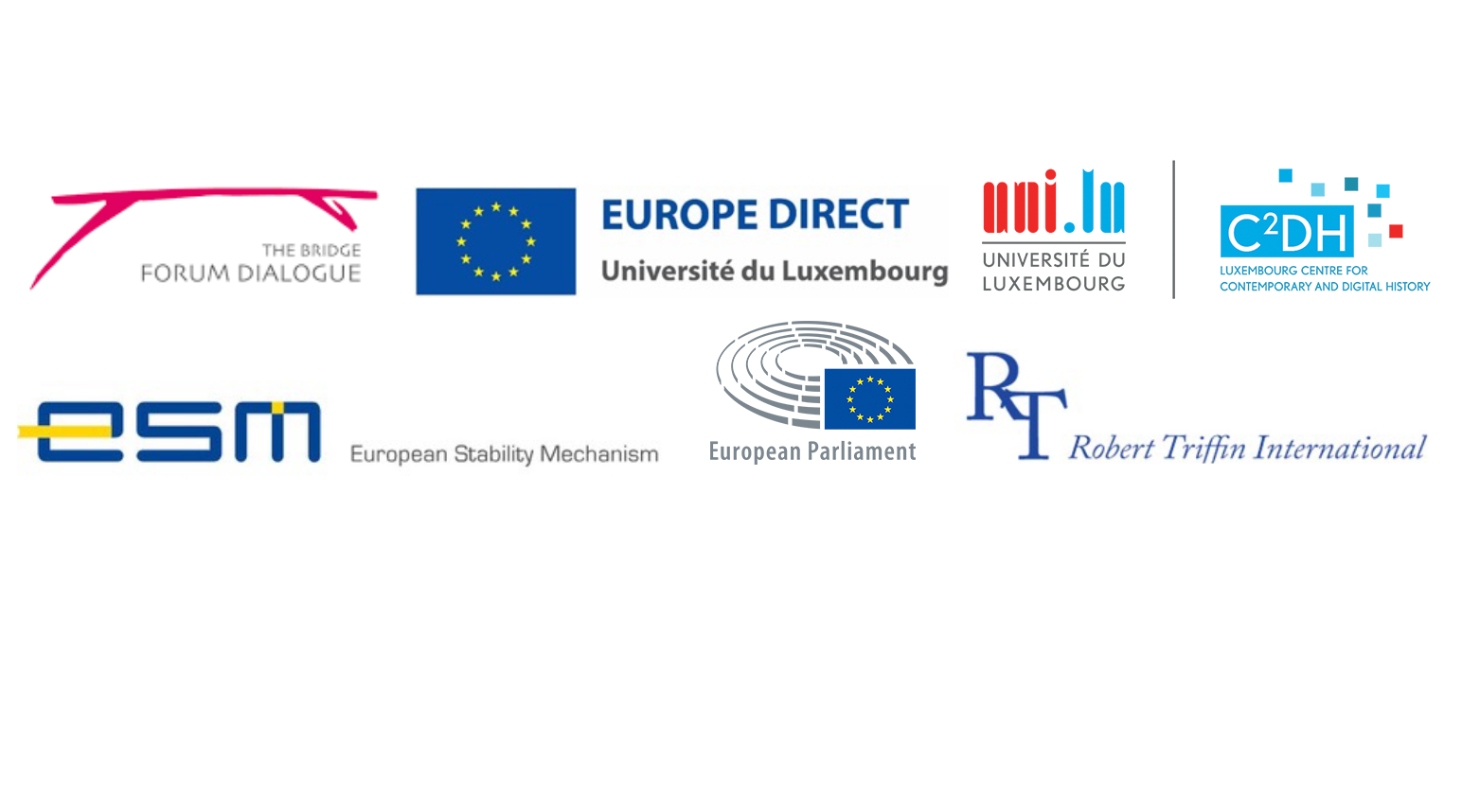
Video recording of the event
Gallery
© University of Luxembourg – Group picture (from left to right):
© University of Luxembourg
